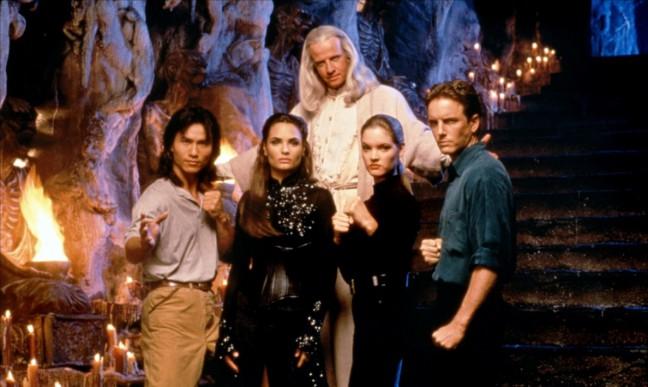Video games are probably the single-hardest product to put out in the marketplace. They’re extremely expensive, but have the greatest yield when fans adore them, almost always spawning sequels. This art form has been around for more than 40 years, and in that time we as players have become plumbers, assassins and thieves with just the touch of a joystick (or A and B buttons on our controllers). When it comes to adapting these stories to the screen, it can get a little tricky. Video game films are usually the most obvious adaptions, behind classic sitcoms and films concerning classic toys. You can’t be the rogue with serious powers or the endowed sleuth in the Aztec temple when watching a film, so the story has to be the thing that entertains. When adapting something, the story becomes compressed, and therein lies the problem with video game adaptations: The grand story that players have taken hours and hours to see to the end is flattened so an audience can take it all in.
The trend of the video game adaptation started some 20 years ago, with varied success. The first American-released video game adaptation was sadly the critically panned and not-easy-to-forget “Super Mario Bros.,” a film that literally had nothing to do with racing around a track, saving Princess Peach from Bowser or the Mushroom Kingdom. Instead the film was set in a subterranean world that looked nothing like the original game and had a plot that made little to no sense. The movie was a serious flop, and the chance to make another sellable adaptation really wouldn’t materialize until “Mortal Kombat” several years later. It formally kick-started the trend of making films based on video games and did so while tying in with the game and creating an original storyline. The trend also produced films that featured female leads, such as “Resident Evil” and “Lara Croft: Tomb Raider,” though they wore skimpy outfits to fight zombies and steal artifacts, unlike their male compatriots. In recent years the genre has waned in popularity thanks to critically-panned films such as Uwe Boll’s “Alone in the Dark,” the adaptation of the popular video game franchise “Max Payne” and the always creepy “Silent Hill.” Lately though, there has been a massive call for adaptations of popular games such as “Assassin’s Creed,” “Metal Gear Solid” and “Sly Cooper.”
When it comes to novels being adapted into films, the qualms are quite clear and are often the same every time: They changed what happened to these beloved characters that viewers had bonded with for all those hours. There’s also the chance they leave something out or meld characters in order to take the large events of a 200-page tome and shorten it for the viewing pleasure of a theater-going audience. In contrast, there’s so much more that fans can be upset about when adapting video games. A book’s events, though sacred in my own opinion, are usually changed for the better of the film and are somewhat unavoidable. We also imagine everything that happens in the book, in our own minds, while video games have visual imagery that supersedes imagination for the player. The player has already seen what the main character looks like, what will happen in the game, what the villain’s plan is or what the main objective is. When it comes to certain films, filmmakers will make unavoidable mistakes or changes will be made that will upset the fans. This can be how the setting looks in contrast to the game, what the story is when there’s little to none in the game or how a character’s personality is constructed.
While some games have rich back stories and plenty of original content for workable scripts, some smaller games are simple to understand and play without narrative. These games are also sometimes adapted into either short films done by the studios that make the games themselves or feature-length films for a large audience through major studios. This trend is relatable to film adaptations of popular toys such as the “Transformers” franchise and “Battleship” because they don’t possess any storyline or memorable imagery for the audience to confer with the likes of their experience. The upcoming “Temple Run” film faces the problem of having no narrative voice or storyline that can be adapted for a feasible script. The same can be said for a planned “Angry Birds” film and maybe even the upcoming “Mortal Kombat” reboot.
Still, though many of these films have been subjugated to either being hated or being compared to the original game, they entertain because they can’t be good. Some stories are just better understood through gameplay and some are better on the screen, where we can’t be the hero but we can empathize with them and their violent tirades.


